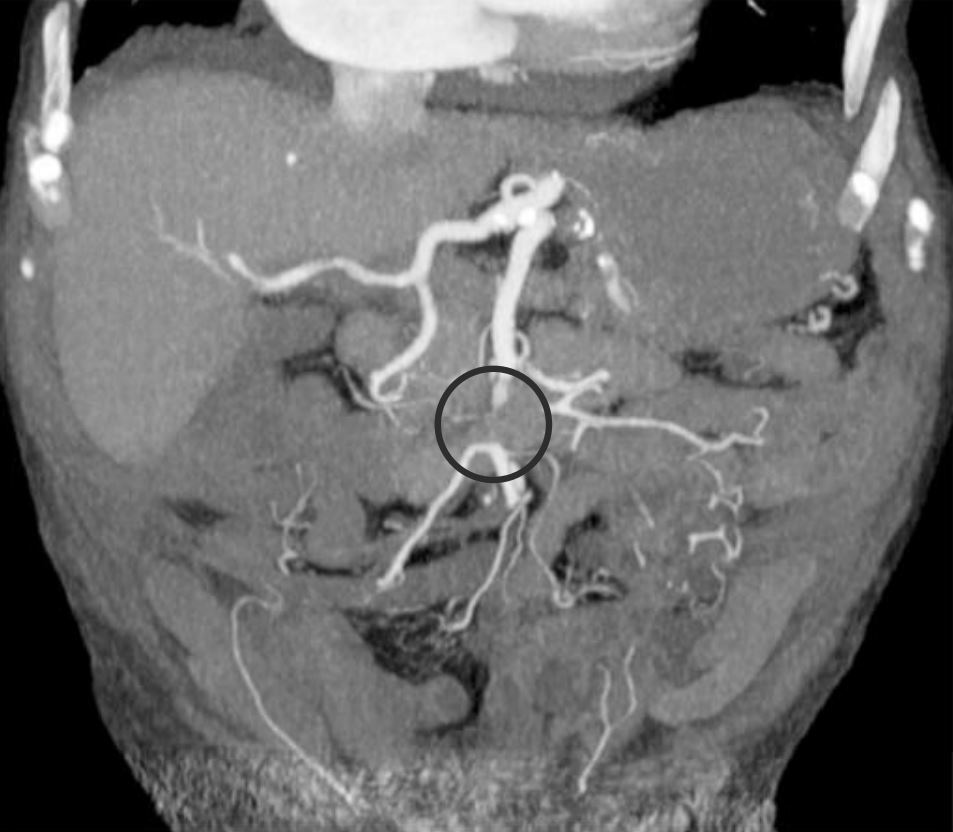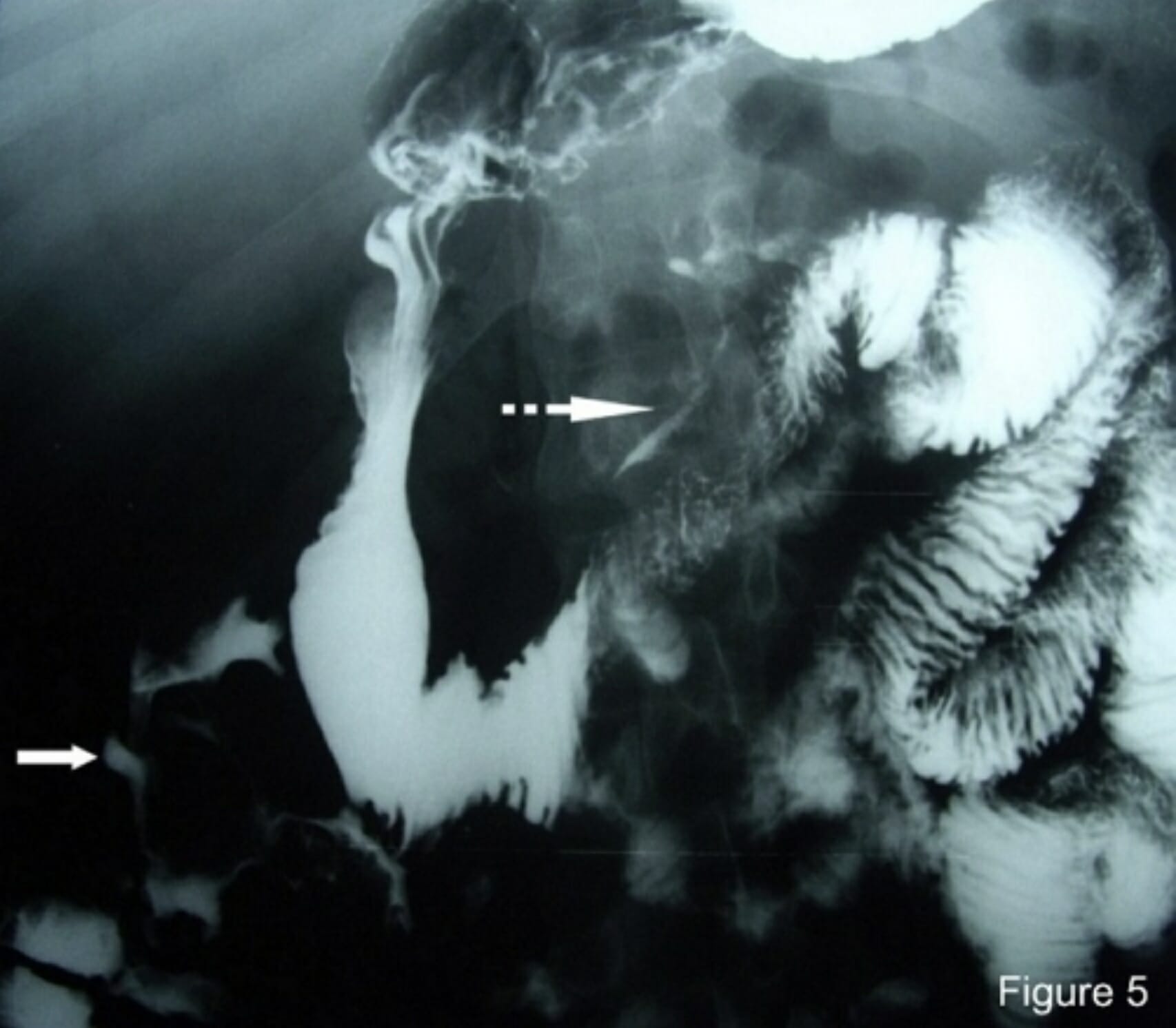Playlist
Show Playlist
Hide Playlist
Chronic Mesenteric Ischemia with Case
-
Slides Gastroenterology 09 Disorders Large Intestine II.pdf
-
Download Lecture Overview
00:01 We'll move on to our next case now. 00:03 We have 54-year-old woman who presents to clinic with 6 months of intermittent abdominal pain. 00:10 Her pain worsens an hour after eating and is associated with anorexia, nausea, and non-bloody diarrhea She is now afraid to eat and has lost 9 kilograms in the last 6 months. 00:21 She underwent upper endoscopy for these symptoms last months with no abnormalities. 00:28 Her medical conditions include hypertension, dyslipidemia and a 30-pack year history of smoking. 00:34 Her vitals are normal, BMI is 18. 00:37 On abdominal exam, a bruit is heard over the upper abdomen and dorsalis pedis pulses are diminished bilaterally. 00:47 What is the most likely diagnosis? So she has chronic intermittent abdominal pain that is worse after eating, associated with weight loss and anorexia. 00:59 She has multiple risk factor for vascular disease, with her hypertension, hyperlipidemia, and history of smoking. 01:07 And on physical exam, she is underweight. 01:10 In addition, she has an abdominal bruit, with reduced DP pulses which would prompt you to consider that it's a diagnosis of peripheral arterial disease. 01:21 So, this woman probably has chronic mesenteric ischemia. 01:25 This is commonly due to atherosclerotic disease of the mesenteric vessels. 01:30 As opposed to acute mesenteric ischemia, it tends to occur with intermittent postprandial abdominal pain, typically about an hour after eating. 01:40 Patients may have fear of eating because of the pain they experience which leads to unintentional weight loss. 01:47 And on exam, you may hear an abdominal bruit or find reduced peripheral pulses. 01:52 So here on the right, you can see a normal blood vessel that allows blood flow after eating and the existence of atherosclerosis with a plaque that then leads to chronically reduced blood flow and can lead to chronic ischemia. 02:07 So the diagnosis as with acute ischemia is done with imaging. 02:12 You may do a vascular doppler ultrasound, or CT or a Magnetic Resonance Angiography. 02:18 Here on the right, you can see an example of a CT angiogram where the arrow points to an area of stenosis, likely from an atherosclerotic plaque of the superior mesenteric artery. 02:32 The treatment is with surgical revascularization or you may place a stent endovascularly to improve blood flow. 02:41 So now, let's go back to our case. 02:43 Our 54-year old woman who's coming in with chronic intermittent abdominal pain worse after eating with now weight loss and anorexia. 02:51 She does have multiple risk factors for some type of vascular disease. 02:55 And her physical exam, confirms likely peripheral arterial disease. 02:59 So the most likely diagnosis here is chronic mesenteric ischemia due to her underlying atherosclerosis.
About the Lecture
The lecture Chronic Mesenteric Ischemia with Case by Kelley Chuang, MD is from the course Disorders of the Small and Large Intestines.
Included Quiz Questions
Which of the following is the best treatment for chronic mesenteric ischemia?
- Surgical revascularization
- Surgical resection of the necrotic bowel
- Vasoconstrictors
- Nitrates
- Alpha-blockers
Which of the following is a clinical feature of chronic mesenteric ischemia?
- Weight loss
- Weight gain
- Increased peripheral pulses
- Preprandial abdominal pain
- Increased appetite
Customer reviews
5,0 of 5 stars
| 5 Stars |
|
1 |
| 4 Stars |
|
0 |
| 3 Stars |
|
0 |
| 2 Stars |
|
0 |
| 1 Star |
|
0 |
She is very thorough and clear. I appreciate pointing out the different etiologies of chronic vs acute mesenteric ischemia





